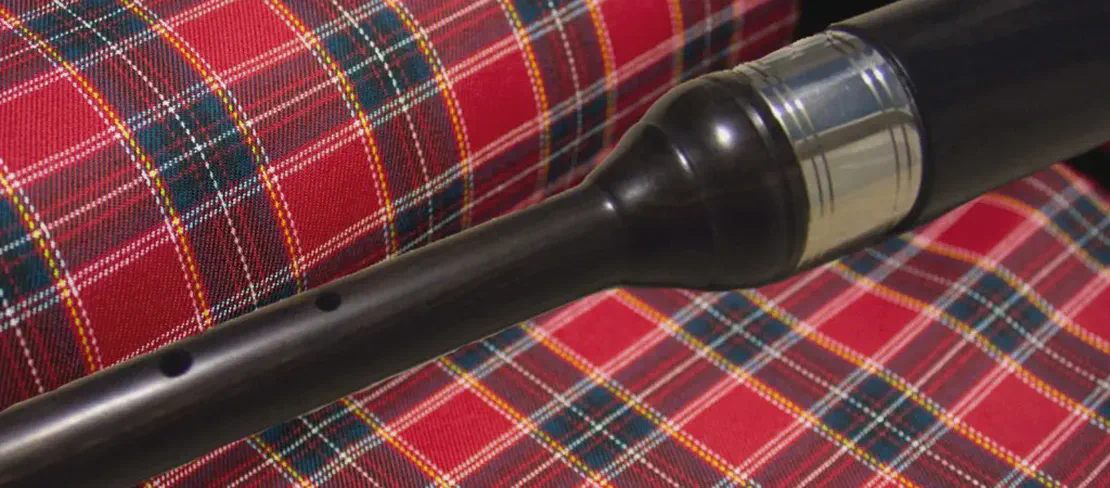- Articles
- November 23, 2023

The bagpipe chanter is a crucial component of the bagpipe, serving as the melody pipe where the player creates music.
It operates on a simple system but produces a wide range of tones and melodies characteristic of bagpipe music. Here are some key points about the bagpipe chanter:

Design and Function
- Material: Traditionally made from hardwoods, modern chanters can also be crafted from plastic materials, offering durability and stability in varying climates.
- Finger Holes: It has a series of finger holes, typically eight on the front and one thumb hole on the back. By covering and uncovering these holes, the piper controls the pitch of the notes produced.
- Reed: The chanter uses a double reed, similar to that of an oboe, which vibrates to produce sound. The reed’s quality and adjustment significantly affect the sound and tuning of the chanter.
- Range: The standard range is one octave plus a note, from low G to high A, with the mixolydian scale being common for the Great Highland Bagpipe chanter.
Types
- Practice Chanter: A smaller version used for learning and practice. It is quieter than the full bagpipe and allows for the development of finger technique and tunes memorization without the complexity of managing the full bagpipe.
- Pipe Chanter: The chanter used with the full bagpipe set, designed to play with the drones in a full, resonant sound. Pipe chanters are longer than practice chanters and have a larger bore.
Tuning and Sound
- Tuning: The tuning of a chanter can be adjusted by manipulating the reed’s position in the reed seat, using tuning tape on the finger holes, or by adjusting the reed itself. The ambient temperature and humidity can also affect tuning, making it necessary for pipers to retune their instruments as conditions change.
- Unique Sound: The chanter’s design, particularly its scale and the continuous sound produced by the bagpipe, contributes to the unique and instantly recognizable sound of bagpipe music. The inability to stop the sound between notes leads to the characteristic legato style of playing, with grace notes and embellishments used to articulate notes and phrases.
In summary, the bagpipe chanter is a sophisticated instrument that demands skill and precision from the piper. Its design and functionality enable the distinctive sound of the bagpipes, a symbol of Scottish culture and heritage that has also found a place in various musical traditions around the world.


